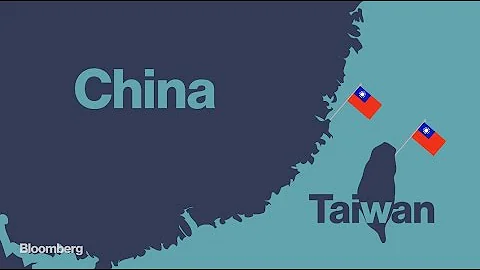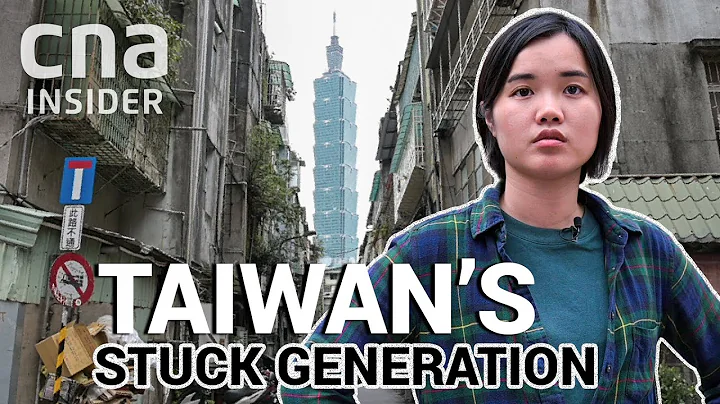
In the eyes of the Democratic Progressive Party authorities, Taiwan’s economy is the “best moment” in the past 20 years. However, if the economy is good and life is safe, more and more people should be willing to live in Taiwan permanently, but in fact this is not the case. Data shows that in the past two years, more people have emigrated from Taiwan than have immigrated to Taiwan, and the number of people living in Taiwan is decreasing.
According to statistics from the "Ministry of the Interior", the changes in the number of "overseas nationals" (except migrant workers) living in Taiwan in the past five years (2017-2021) are: the number has increased by more than 10,000 per year in the first three years (+12,000, +1.1 million, +17,000), with an increase of only 2,000 in 2020, and a reverse decrease of 1,000 in 2021. The last two years were during the COVID-19 epidemic. Taiwan's epidemic control was "relatively good" globally, but the number of "foreigners" actually reversed, revealing extremely unusual information. Not only did "foreigners" decrease, but the same phenomenon also occurred in the migration of Taiwanese people, with "net in-migration" growing negatively (-34,000, -156,000). The trend in the first two months of this year was even more obvious, with "net out-migration" reaching as high as 47,000. This trend will surpass last year and hit a new high this year.
Unfortunately, the "Ministry of the Interior" has not clearly classified the destination of people's emigration, and it is even impossible to clearly infer the reasons and impact of the increase in "net emigration". But we can still deduce the most likely reasons based on the political and economic developments inside and outside the island in the past two years.
In population theory, the most important factors affecting immigration are economic, political (including military) and social changes. Economies with economic stagnation or recession, or even food crises, will naturally have emigration. When there is political conflict or war, the population will naturally be forced to move out; if there is social unrest, ethnic groups who are psychologically uneasy will naturally move out. Although Taiwan's economic situation has been "the best" in recent years, but there is still a net emigration of people, the reason should be in the political, military or social aspects.
In the past two years, what prominent "major events" have occurred politically in Taiwan? It is obvious that cross-strait relations have worsened - Taiwan is overwhelmingly "in favor of the United States" and frequently challenges the mainland's "anti-independence" red line, such as "the case of setting up a case in Lithuania", "the US military assists in training the Taiwanese military" and "high-level visits" " etc., the mainland people's voice for "military reunification" has increased significantly, and Taiwan media has reported a lot of reports, which has caused confusion in Taiwanese people. On the social level, the Tsai administration has further "de-Sinicized" - revised the curriculum again, making Chinese history completely a "foreign history"; making the study of "native languages" a compulsory course in middle schools; and further reducing the weight of "classical Chinese", resulting in People are worried and are considering emigrating. Recently, " Taipei International Community Radio " (ICRT) has been advertising immigration to the United States and Canada almost 24 hours a day. Immigration to North America may be "in progress now."
However, due to the lack of clear statistics, "net emigration" of people will not only immigrate to North America. The "Cross-Strait Integration" policy proposed by the Mainland in recent years has been aimed at creating a suitable living environment for Taiwanese people, such as the establishment of a "Cross-Strait Integration Development Demonstration Zone" and the policy of providing equal treatment to Taiwanese people, which may have produced considerable results. Last year's mainland census showed that at least 150,000 Taiwan compatriots have settled in the mainland. The mainland may become another important destination for "net outmigration" of Taiwanese people. Moreover, as Beijing's confidence increases and it attaches great importance to Taiwan compatriots, it is expected that its attraction to Taiwan compatriots who are dissatisfied with Taiwan's current situation will be even higher in the future.
Taiwan's natural resources are limited, and economic development is increasingly restricted by resources; if it wants to sustain development, it can only rely on "smart" investment to reduce restrictions. Whether talents can be gathered in Taiwan is related to Taiwan's future. Immigrants are probably elites who are worried that Taiwan's security and social development will be detrimental to their families, so they resolutely leave their hometown for development.
Taiwan's "Island-protecting Sacred Mountains" are extremely worried about the shortage of talents. Countries such as Europe, the United States and Japan are also trying their best to develop their own chip industries. In addition, the "five deficiencies" that have been criticized in Taiwan's industrial development are becoming increasingly serious. When the prosperity of the current business cycle passes, , or after Europe and the United States complete the construction of their chip territory, whether Taiwan, which lacks talent attraction, can continue to develop in the future is actually a major issue.However, the DPP is only satisfied with the current so-called "high economic growth rate" and continues to hypnotize voters who do not know the risks, heading towards the "road to resist China" full of storms.
The "net emigration" of the population in the past two years has sent a serious warning to Taiwan; leaders who ignore this "grey rhinoceros" will bring risks and disasters to the Taiwanese people.
(This article is an editorial of Taiwanese media "China Times")





















